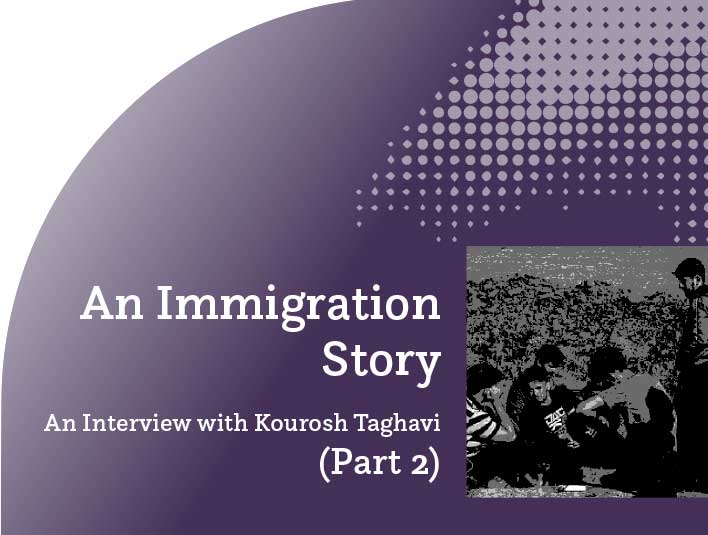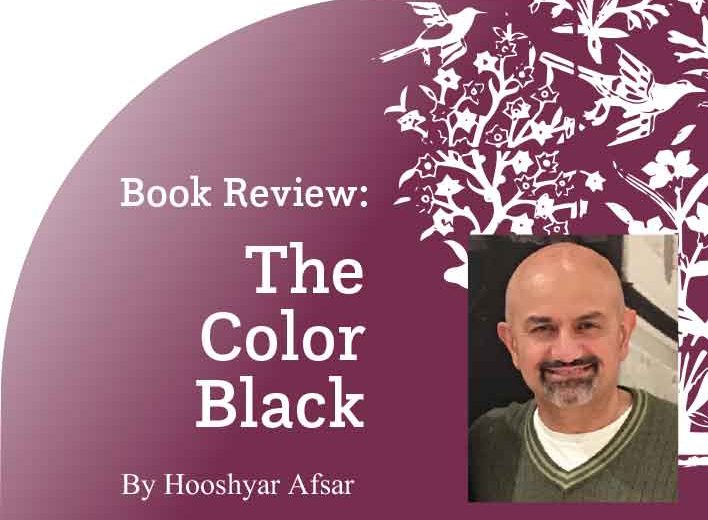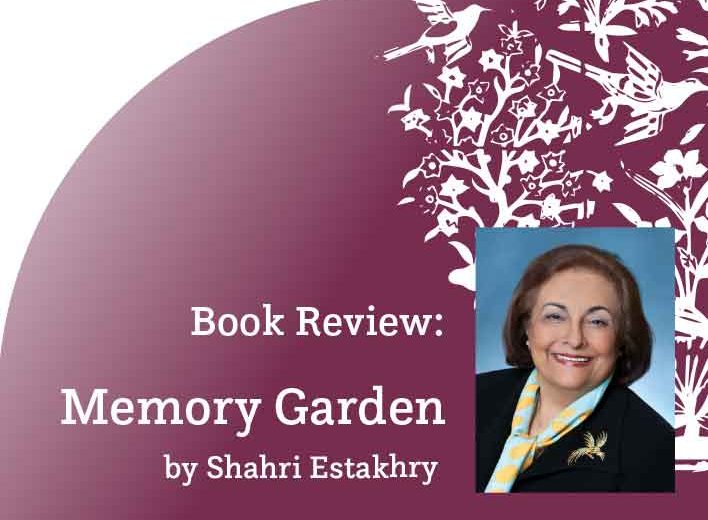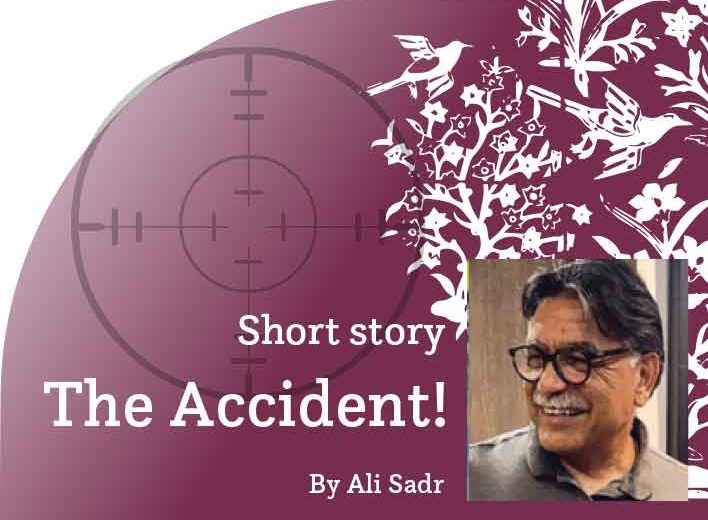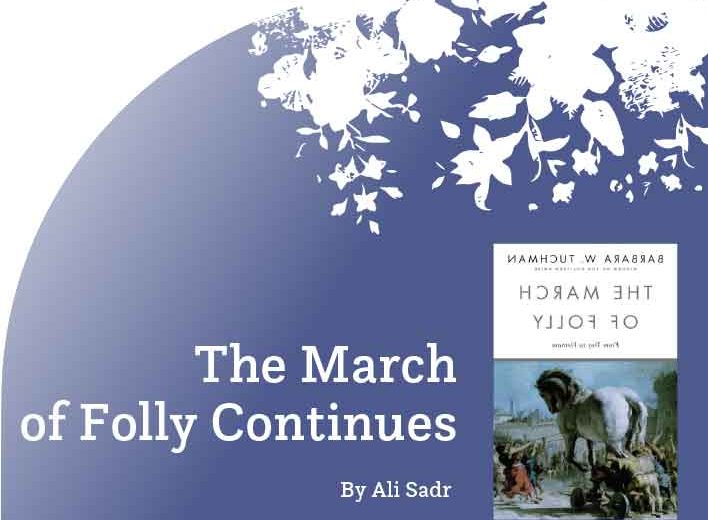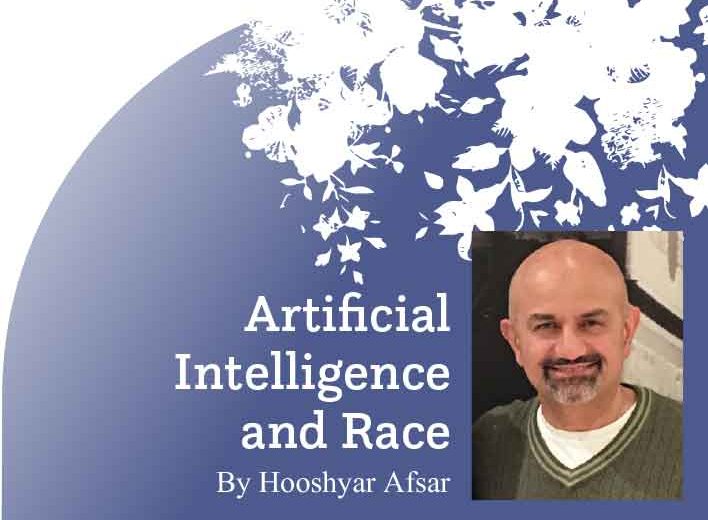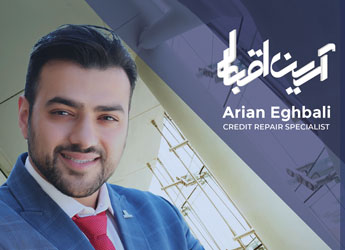An Interview with Kourosh Taghavi (Part 2)
Leaving your homeland and residing in another—with a totally new culture, language, and set of laws and regulations—is very challenging and requires a lot of adaptation that, in most cases, is also very frustrating. But, looking back at those challenges many years later makes some of them look funny, some amazing, and some, of course, sad. The truth is, no matter how we feel about them, the challenges are, for sure, part of the history of immigration that needs to be documented for use by our grandchildren or simply by historians to picture the hardship that first-generation Iranians had to go through to meet those challenges.
Peyk kicked off this column in 2021 with Reza Khabazian’s story, with a goal to encourage our readers to start telling their stories so we can present a diverse documentary. Now that Mr. Khabazian has published his story, it is time for new stories and new voices. This is the second part of Kourosh Taghavi’s story.
In Peyk #203 (Jan-Feb 2023), we learned that Mr. Taghavi’s parents decided to send him out of the country via an illegal border crossing to protect his life. To do that, they hired a trusted guide by the name of Davood to take them through the process. In this issue, we will learn how the process went forward.

Reza Khabazian (RK): Thank you, Mr. Taghavi, for taking time to share your story with our readers as hard as it can be sometimes. I strongly believe that whenever we, as the general public, face the terminology of “illegal border crossing,” we have no idea about the hardship involved and the feelings that go with that. I would like to ask you to please elaborate on that if you will.
Kourosh Taghavi (KT): That is correct. An illegal border crossing not only comes with several risks in which some of them can end a person’s life—anything from wild animal attacks to falling from mountains or to even getting shot by border patrol—but also brings a load of emotional distress with it. Unfortunately, all participants knowingly try not to think about those dangers mainly because that is the only option available to them.
While you are in the process, the first subject that comes to your mind is thinking about the reason behind your decision, meaning asking yourself why society is forcing me to choose this route. The answer to just this question is depressing. The other subject is, based on general beliefs, illegal border crossing is for criminals and drug traffickers and not for decent individuals. You know, within yourself, that what you are doing is clearly breaking the law which is not a happy feeling.
As soon as you step across the border, suddenly you feel that “you are Nobody.”
RK: Why is that?
KT: Because you have a fake passport loaded with fake stamps, a fake name, a fake identity that doesn’t match with who you really are. If you get killed by any means, there is no way for any authority to know who you really are. The other dilemma is no matter how important a person you are in the moment before crossing the border, you become all the same—a bunch of “Nobodies.” Either you are a brilliant heart surgeon, a car mechanic, a scientist, or even a peasant. You also learn quickly that you should not trust any other person. Think about your own self trying to get yourself to your final destination.
RK: How sad it is!
KT: Yes, unfortunately it is!
RK: Now that the hardship is behind you, if you had to do it again, would you do it?
KT: Not at all.
RK: What would you say to someone who is deciding to go through it?
KT: I would suggest to them “Not to Do It” unless it is a matter of life and death.
RK: Now, please take us on your journey.
KT: Our group was five people. Two of my cousins, myself, and two other teenagers. All in the same age group. We were very lucky to find Davood, an exceptional human being, to be our guide. He was very knowledgeable, honest, and caring. Our journey happened at two different times. The first time coincided with the peak of the Iran-Iraq War and the border was loaded with army personnel. As our car got close to a village by the border, Davood noticed that the car in front of him got stopped by the border patrols, so he turned around and drove like a mad man, shouting at us “lay dooowwwwn.”
RK: How did the group react?
KT: We all followed his order quickly while being super scared. We were expecting to get shot at any minute. It was the longest 10 minutes of our lives while the car was driven very fast over all the road bumps before the kind and gentle Davood came to life and said:
“Sorry boys, now you can sit back. Unfortunately, the border is not a safe place to pass at this time. We all have to go back home.”
RK: And the second time?
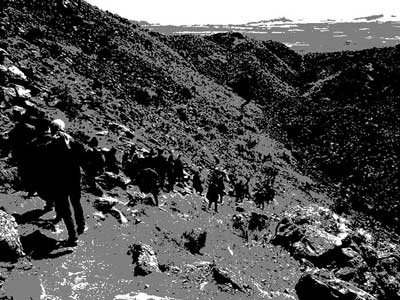
KT: Before I go through the second time, let me tell you how honest Davood was. He dropped us at home and disappeared for almost one month. After a couple of weeks passed, my parents got suspicious thinking that he had received all the money and would never come back. I was mostly silent and believed that he would come back. Two more weeks passed and while all of my family members were losing hope, he came back. He sat in front of my parents, put his hand in his pocket and brought all the money he had received, laid the money in front of them and said:
“This is all the money you have paid me. You have the option
of taking the money, looking for another guide to take the young
kids across or trust me to help them pursue their dreams one more time.”
I knew that my parents wouldn’t touch the money, but they looked at me to see what my reaction was. I said:
“Either I forget about crossing the border or I won’t go with
anybody except Davood. His honesty to come back here after
One month, offering a full refund, should tell us a lot of things
about his character.”
They all agreed, so the second try got underway.
RK: I am sure crossing the border contains various details. I wish we had enough time and space to go through it all. Now, considering our limitations, please get us through it.
KT: The journey that got us just from Iran to Istanbul took almost one week. Some of the way by car, some by riding on horse, and some on foot by climbing mountains. Since it was wintertime, we faced a winter storm and had to stay overnight in a village nearby. On the morning of the fifth day, we reached the first village in Turkey and from there by bus to Ankara.
RK: What was your feeling when you got to the village?
KT: Honestly, I was not thinking about anything except being extra careful staying low key and looking forward to our final destination which was coming to America.
RK: Did you feel safer when you reached Ankara?
KT: Not then. By listening to Davood, it sounded like we are not out of danger yet. He believed getting to Istanbul would bring a mild feeling of safety and he was correct. The first time that I felt safe was when we arrived in Italy, a western country, mainly because there the rule of law would prevail. In contrast to Turkey, then Bulgaria and Yugoslavia—in which our arrest would have returned us to Iran—in Italy even if someone gets caught, they wouldn’t return him to Iran because he had the option of applying for asylum. Our case was totally different because we had a legal visa to get to Italy.
RK: How did you cross all those borders?
KT: When we got to Istanbul, Davood took us to a hotel to buy time to hire an attorney to get us a visa for Italy. During the month of our stay in Istanbul, my cousin “Habib” who was living in Italy came to Istanbul not only for a visit but also to get us to Italy by his car. Finally, after a month in Turkey and having a 15-day stay visa to Italy, we said goodbye to Davood and hit the road toward Bulgaria and then to Yugoslavia.
RK: There was no problem passing through those countries?
KT: At that time, both countries were under the rule of communism. Therefore, bribing was the best way to solve any problem; one border patrol asked for cigarettes, another one simply asked clearly for money. So, we got to Italy and my cousin Habib got us another 15 days extension until we managed to get a U.S. visa and fly legally to Los Angeles, where my other cousins were waiting for us at the LAX airport.
RK: Thank you very much, Mr. Taghavi, for sharing your thoughts and your story with us. In the next issue, I would like to ask you questions on how you assimilated in America and the experiences learned.
KT: Sure. Thank you, too.

